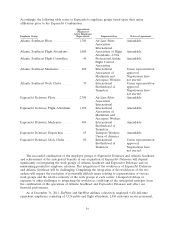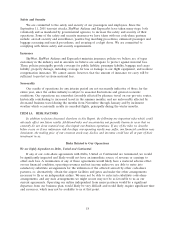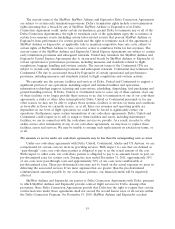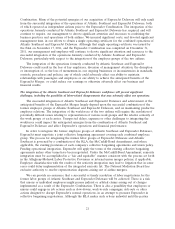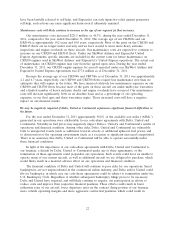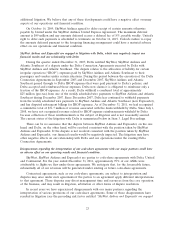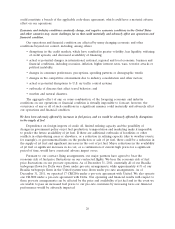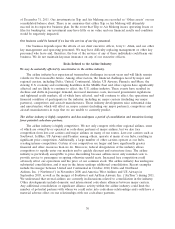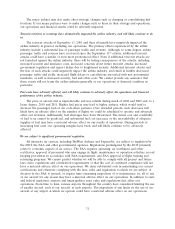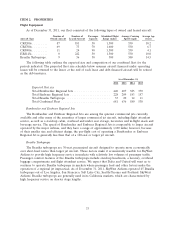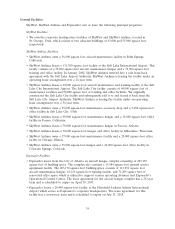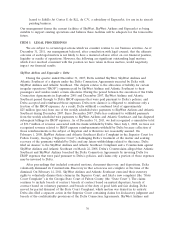SkyWest Airlines 2011 Annual Report Download - page 30
Download and view the complete annual report
Please find page 30 of the 2011 SkyWest Airlines annual report below. You can navigate through the pages in the report by either clicking on the pages listed below, or by using the keyword search tool below to find specific information within the annual report.could constitute a breach of the applicable code-share agreement, which could have a material adverse
effect on our operations.
Economic and industry conditions constantly change, and negative economic conditions in the United States
and other countries may create challenges for us that could materially and adversely affect our operations and
financial condition.
Our operations and financial condition are affected by many changing economic and other
conditions beyond our control, including, among others:
• disruptions in the credit markets, which have resulted in greater volatility, less liquidity, widening
of credit spreads, and decreased availability of financing;
• actual or potential changes in international, national, regional and local economic, business and
financial conditions, including recession, inflation, higher interest rates, wars, terrorist attacks or
political instability;
• changes in consumer preferences, perceptions, spending patterns or demographic trends;
• changes in the competitive environment due to industry consolidation and other factors;
• actual or potential disruptions to U.S. air traffic control systems;
• outbreaks of diseases that affect travel behavior; and
• weather and natural disasters.
The aggregate effect of any, or some combination, of the foregoing economic and industry
conditions on our operations or financial condition is virtually impossible to forecast; however, the
occurrence of any or all of such conditions in a significant manner could materially and adversely affect
our operations and financial condition.
We have been adversely affected by increases in fuel prices, and we would be adversely affected by disruptions
in the supply of fuel.
Dependence on foreign imports of crude oil, limited refining capacity and the possibility of
changes in government policy on jet fuel production, transportation and marketing make it impossible
to predict the future availability of jet fuel. If there are additional outbreaks of hostilities or other
conflicts in oil-producing areas or elsewhere, or a reduction in refining capacity (due to weather events,
for example), or governmental limits on the production or sale of jet fuel, there could be a reduction in
the supply of jet fuel and significant increases in the cost of jet fuel. Major reductions in the availability
of jet fuel or significant increases in its cost, or a continuation of current high prices for a significant
period of time, would have a material adverse impact on us.
Pursuant to our contract flying arrangements, our major partners have agreed to bear the
economic risk of fuel price fluctuations on our contracted flights. We bear the economic risk of fuel
price fluctuations on our pro-rate operations. As of December 31, 2011, essentially all of our Brasilia
turboprops flown for Delta were flown under pro-rate arrangements, while approximately 61% of our
Brasilia turboprops flown in the United system were flown under pro-rate arrangements. As of
December 31, 2011, we operated 17 CRJ200s under a pro-rate agreement with United. We also operate
one CRJ200 under a pro-rate agreement with Delta. Our operating and financial results with respect to
these pro-rate arrangements can be affected by the price and availability of jet fuel and in the event we
are unable to pass on increased fuel prices to our pro-rate customers by increasing fares our financial
performance would be adversely impacted.
26


